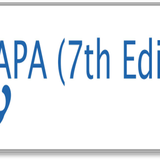Audit Committee And Earnings Management: The Role Of Gender
DOI:
https://doi.org/10.24912/ja.v23i3.603Abstract
This study has a purpose to investigate the effect of committee audit on earnings management. Using a sampel of companies companies listed in Indonesia Stock Exchange (IDX) 2013-2017. Results of this study shows that gender of audit committee significantly effect earnings management, it explains that female on audit committee are more careful and allow for discretion in terms of financial reporting. The results explain gender theory that women are more risk averse and ethical than men. This research provides new insights for management so that they can consider gender in the selection of committee audit to be appointed by the company with regard to the financial reporting process.
References
Abdullah, S. N., and Ismail, K. N. I. K. (2016). Women Directors, Family Ownership and Earnings Management in Malaysia. Asian Review of Accounting, 24(4), 525–550. https://doi.org/10.1108/ARA-07-2015-0067.
Al-absy, M. S. M., Ismail, K. N. I. K., and Chandren, S. (2018). Accounting Expertise in the Audit Committee and Earnings management. Business and Economic Horizons. https://doi.org/10.15208/beh.2018.33.
Al-Dhamari, R. A. A., and Chandren, S. (2018). Audit Partners Gender, Auditor Quality and Clients Value Relevance. Global Business Review, 19(4), 952–967. https://doi.org/10.1177/0972150917697747.
Albring, S., Robinson, D., and Robinson, M. (2014). Audit committee financial expertise, corporate governance, and the voluntary switch from auditor-provided to non-auditor-provided tax services. Advances in Accounting, 30, 81–94.
Amar, A. Ben. (2014). The Effect of Audit Committee Financial Experts on Earnings Management. 6(2), 156–166.
Ararat, M., Aksu, M. H., and Cetin, A. T. (2012). The Impact of Board Diversity on Boards’ Monitoring Intensity and Firm Performance: Evidence from the Istanbul Stock Exchange. SSRN Electronic Journal, 90(216). https://doi.org/10.2139/ssrn.1572283.
Arun, T. G., Almahrog, Y. E., and Aribi, Z. (2015). Female Directors and Earnings Management: Evidence from UK Companies. International Review of Financial Analysis, 39, 137–146. https://doi.org/10.1016/j.irfa.2015.03.002.
Badolato, P. G., Donelson, D. C., and Ege, M. (2014). Audit Committee Financial Expertise and Earnings Management: The Role of Status. Journal of Accounting and Economics, 58(2–3), 208–230. https://doi.org/10.1016/j.jacceco.2014.08.006.
Bédard, J., & Gendron, Y. (2011). Strengthening the Financial Reporting System: Can Audit Committees Deliver? SSRN Electronic Journal, 6(418), 1–66. https://doi.org/10.2139/ssrn.1438150
Dechow, P. M. ., R.G., S., and A.P., S. (1995). Detecting Earnings Management. The Accounting Review, 70(2), 193–225.
Dhaliwal, D., Naiker, V., and Navissi, F. (2010). The Association Between Accruals Quality and the Characteristics of Accounting Experts and Mix of Expertise in Audit Committees. Contemporary Accounting Research, 27(3), 787–827. https://doi.org/. https://doi.org/10.1111/j.1911-3846.2010.01027.x.
Gavious, I., Segev, E., and Yosef, R. (2012). Female Directors and Earnings Management in High-Technology Firms. Pacific Accounting Review, 24(1), 4–32. https://doi.org/10.1108/01140581211221533.
Gull, A. A., Nekhili, M., Nagati, H., and Chtioui, T. (2018). Beyond Gender Diversity: How Specific Attributes of Female Directors Affect Earnings Management. British Accounting Review, 50(3), 255–274. https://doi.org/10.1016/j.bar.2017.09.001.
Haryanto, S. A. (2017). TII Sebut Pertamina Korporasi Paling Transparan di RI. Retrieved January 11, 2020, from https://www.cnnindonesia.com/ekonomi/20171206185822-92-260634/tii-sebut-pertamina-korporasi-paling-transparan-di-ri.
Ho, S. M., Li, A., Tam, K., and Zhang, F. (2015). CEO Gender, Ethical Leadership, and Accounting Conservatism. Journal of Business Ethics, 127(2), 351–270. https://doi.org/https://doi.org/ 10.1007/s10551-013-2044-0.
Hoever, I. J., Van Knippenberg, D., Van Ginkel, W. P., and Barkema, H. G. (2012). Fostering team creativity: perspective taking as key to unlocking diversity’s potential. Journal of Applied Psychology, 97(5), 982. https://doi.org/https://doi.org/ 10.1037/a0029159.
Ittonen, K., Peni, E., and Vahamaa, S. (2013). Female Auditors and Accruals Quality. American Accounting Association, 27(2). https://doi.org/https://doi.org/10.2308/acch-50400.
Jensen, M., and Meckling, W. (1976). Theory of the Firm: Managerial Behavior, Agency Costs and Ownership Structure. Journal of Financial Economics, 3(4), 305–360. https://doi.org/https://doi.org/10.1016/0304-405X(76)90026-X.
Jones, J. (1991). Earnings management during import relief investigations. Journal of Accounting Research, 29(2), 193–228.
Khlif, H., and Achek, I. (2017). Gender in Accounting Research: a Review. Managerial Auditing Journal, 32(6), 627–655. https://doi.org/10.1108/MAJ-02-2016-1319.
Kompas. (2017). Penerapan Transparansi Bisnis Sebagai Kunci Tata Kelola Perusahaan. Retrieved November 29, 2019, from https://biz.kompas.com/read/2017/12/18/090414528/penerapan-transparansi-bisnis-sebagai-kunci-tata-kelola-perusahaan.
Kumparan Bisnis. (2019). Fakta-Fakta Skandal Laporan Keuangan Garuda. Retrieved November 13, 2019, from https://kumparan.com/kumparanbisnis/fakta-fakta-skandal-laporan-keuangan-garuda-1rMwNVMNWKZ.
Kyaw, K., Olugbode, M., and Petracci, B. (2015). Does Gender Diverse Board Mean Less Earnings Management? Finance Research Letters, 14, 135–141. https://doi.org/10.1016/j.frl.2015.05.006.
Liu, Y., Wei, Z., and Xie, F. (2014). CFO Gender and Earnings Management : Evidence from China. https://doi.org/10.1007/s11156-014-0490-0.
Nelson, S. P., and Devi, S. (2013). Audit Committee Experts and Earnings Quality. Corporate Governance: The International Journal of Business in Society, 13(4), 335–351. https://doi.org/10.1108/CG-02-2011-0009.
Panzer, L., and Muller, S. (2015). Earnings {Quality} and {Gender} {Diversity} on {German} {Supervisory} {Boards}: {An} {Empirical} {Analysis}. Problems and Perspectives in Management, 13(4), 9–18. https://doi.org/http://businessperspectives.org/component/option,com_journals/task,allissues/id,3/Itemid,74/.
Perols, J., and Lougee, B. (2011). The Relation Between Earnings Management and Financial Statement Fraud. Advances In Accounting, 27(1), 29–53. https://doi.org/https://doi.org/10.1016/j.adiac.2010.10.004.
Salehi, M., Tahervafaei, M., and Tarighi, H. (2018). The effect of characteristics of audit committee and board on corporate profitability in Iran. . . Journal of Economic and Administrative Sciences, 34(1), 71–88. https://doi.org/https://doi.org/10.1108/JEAS-04-2017-0017.
Saona, P., Muro, L., San Martín, P., and Baier-Fuentes, H. (2019). Board of Director’s Gender Diversity and its Impact on Earnings Management: An Empirical Analysis for Select European Firms. Technological and Economic Development of Economy, 25(4), 634–663. https://doi.org/10.3846/tede.2019.9381.
Scott, W. R. (2011). Financial Accounting Theory (Sixth Edit). Cana: Person Prentice Hall.
Siboni, B., Sangiorgi, D., Farneti, F., and de Villiers, C. (2016). Gender Accounting: Insights, Gaps and an Agenda for Future Research. Meditari Accountancy Research, 24(2), 156–168. https://doi.org/https://doi.org/ 10.1108/MEDAR-04-2016-0054.
Soliman, M., and Ragab, A. A. (2013). Audit Committee Effectiveness, Audit Quality and Earnings Management: An Empirical Study of the Listed Companies in Egypt. SSRN Electronic Journal, 1–29. https://doi.org/10.2139/ssrn.2315355.
Srinidhi, B., Gul, F., and Tsui, J. (2011). Female Directors and Earnings Quality. Contemporary Accounting Research, 28(5), 1610–1644. https://doi.org/https://doi.org/ 10.1111/j.1911-3846.2011.01071.x.
Sugiyono. (2012). Metode Penelitian Bisnis (16th ed.). Bandung: Alfabeta.
Sultana, N., and Zahn, J. W. M. Van Der. (2013). Earnings Conservatism and Audit Committee Financial Expertise. Accounting and Finance, (March 2013).
Sun, J., Liu, G., and Lan, G. (2011). Does Female Directorship on Independent Audit Committees Constrain Earnings Management? Journal of Business Ethics, 99(3), 369–382. https://doi.org/10.1007/s10551-010-0657-0.
Watts, R. L., and Zimmerman, J. L. (1990). Positive Accounting Theory: A Ten Year Perspective. The Accounting Review, 65(1), 131–158.
Yang, S., Liu, Y., and Mai, Q. (2018). Is the Quality of Female Auditors Really Better? Evidence Based on The Chinese A-share Market. China Journal of Accounting Research, 11(4), 325–350. https://doi.org/10.1016/j.cjar.2018.07.004.
Zalata, A. M., Tauringana, V., and Tingbani, I. (2018). Audit Committee Financial Expertise, Gender, and Earnings Management: Does Gender of the Financial Expert Matter? International Review of Financial Analysis, 55(March 2017), 170–183. https://doi.org/10.1016/j.irfa.2017.11.002.
Downloads
Published
How to Cite
Issue
Section
License

This work is licensed under a Creative Commons Attribution-NonCommercial-ShareAlike 4.0 International License.
This journal provides immediate open access to its content on the principle that making research freely available to the public supports a greater global exchange of knowledge.

This work is licensed under a Creative Commons Attribution-NonCommercial-ShareAlike 4.0 International License



















